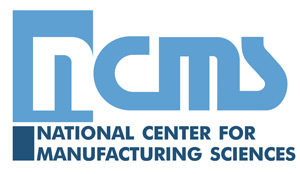Development of Vehicle Telematics and Condition-Based Maintenance Solutions for Fleet Sustainability
NCMS Project #: 140812
Problem: Large materiel sustainment enterprises are supported by large fleets of logistics vehicles. These large enterprises are continuously exploring new ways to improve their efficiency, effectiveness and impact on the environment. Since fuel consumption on these logistics vehicles is both a substantial cost and impact on the environment, best-in-class maintenance and sustainment enterprises are exploring telematics as a tool to reduce fuel cost and greenhouse gas emissions. At a time when fleet energy consumption is at an all-time high, FuelMaster’s® Automotive Information Module (AIM) promises to define greenhouse gas reductions and support preparations for the impacts of climate change.
Benefit: This initiative will document the financial viability of telematics as a means to collect and monitor vehicle fuel and usage data, monitoring unnecessary idle time while accurately accounting for fuel used by motor vehicles and implementing a condition-based maintenance program.
Solution/Approach: In order to accelerate the acceptance and adoption of AIM type systems globally, industry is partnering with the USMC to demonstrate how it can cut the operational tether to fossil fuel supply lines by arming first line commanders, supervisors, fleet managers and operators with valuable information about the vehicles Marines are operating and the amount of energy being consumed, at the asset level. The USMC already has FuelMaster® systems installed at all of the service stations at Camp Lejeune, NC, creating an optimal location to pilot a program to evaluate AIM. Currently installed FuelMaster® systems can be upgraded to solve all of the above problems AND provide the mandated telematics data required by EO 13693.
This initiative will focus on evaluating the utility, feasibility, and maintainability of utilizing vehicle telematics devices in fleets of light duty vehicles. This will be accomplished by installing AIM devices in 100 white-fleet vehicles at Camp Lejeune, NC. In addition, at least one automated fuel station at Camp Lejeune will be upgraded with AIM technology in assigned FuelMaster® Units. During the pilot program, vehicle performance and the data collected will be evaluated.
Impact on Warfighter:
- Documents accurate fuel usage
- Monitors unnecessary idle time
- Moves towards a vehicle condition-based maintenance philosophy
- Reduces man-hours associated with tracking and recording vehicle odometer readings
- Reduces overall operations and maintenance costs
DOD Participation:
- U.S. Marine Corps (Camp Lejeune)
- U.S. Marine Corps Fleet Vehicle Maintenance
- Defense Logistics Agency
Industry Participation:
- Syntech, Inc.
- NCMS
Benefit Area(s):
- Cost savings
- Obsolescence management and continued maintenance capability
Focus Area:
- CBM+
